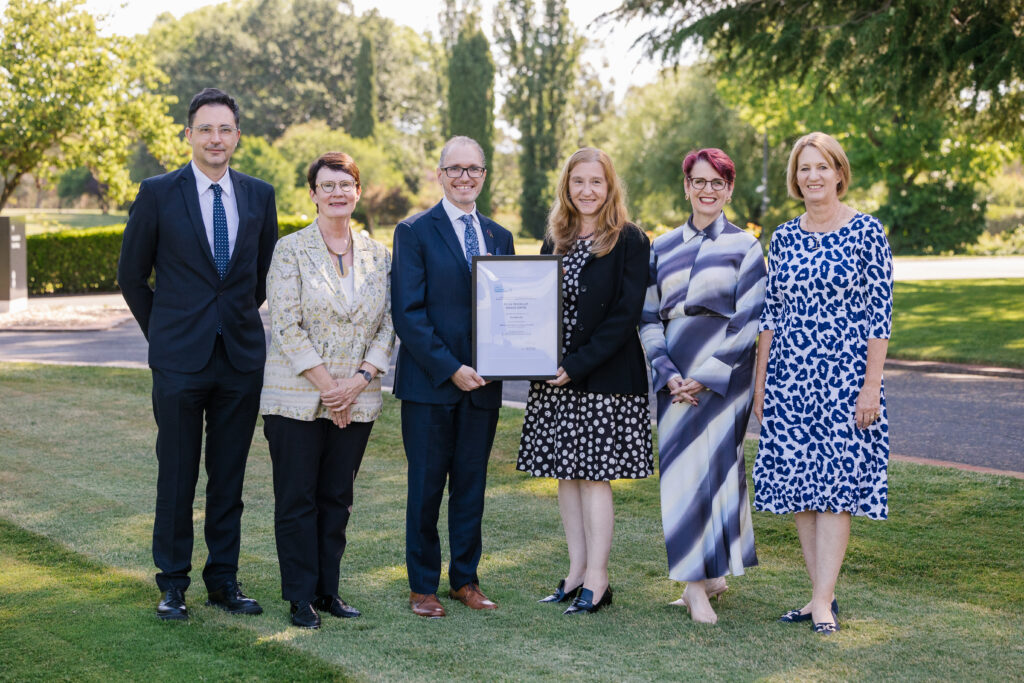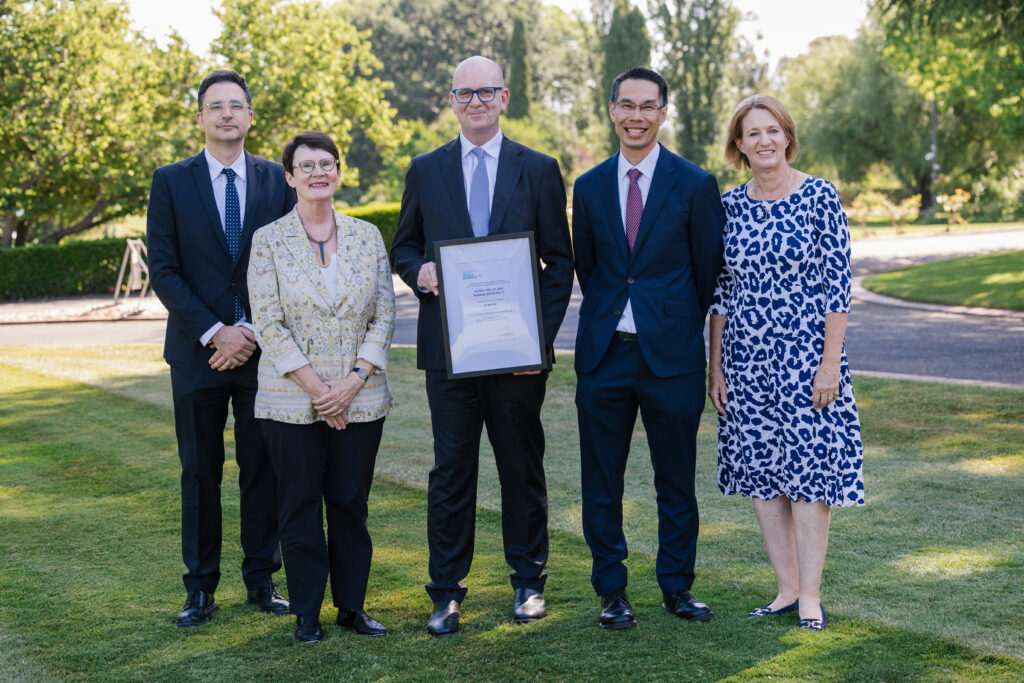The Governor-General, Her Excellency the Honourable Sam Mostyn AC has announced the award of Australian Cancer Research Foundation’s (ACRF) 2024 grants at Government House in Canberra. The announcement includes two National Imaging Facility (NIF) supported grants to deliver two new research-dedicated total-body PET/CT scanners to benefit Australian health research.
Advanced total-body PET/CT imaging technology can scan the entire body in a single session with unprecedented detail and accuracy. Total-body PET/CT opens new avenues for research by enabling earlier and more precise detection of diseases, ultimately leading to more effective treatments and better patient outcomes.
NIF will contribute a total of $2.45 million to the grants under the Australian Government Department of Education’s National Collaborative Research Infrastructure Strategy (NCRIS).
NIF CEO Professor Wojtek Goscinski said these two cutting-edge total-body PET/CT instruments will be integrated into Australia’s advanced imaging network at Alfred Hospital (through NIF’s Partner Monash University), and Peter MacCallum Cancer Centre (through NIF’s Partner University of Melbourne).
“This initiative will create a unique national-scale total body PET/CT network for research and clinical trials, offering a vital asset for both investigators and industry to advance the development of new cancer treatments,” Prof Goscinski said.
ACRF CEO Kerry Strydom said ACRF’s goal is to support the most brilliant and promising research into all types of cancers, which is evident in the grant recipients for 2024, and acknowledged the collaborative funding received from NIF.
“National Imaging Facility will contribute $1 million to the purchase of the total-body PET/CT scanner and fund operating costs of $0.75 million at ACRF Centre of Advanced Image-Guided Cancer Therapeutics. In addition, National Imaging Facility will contribute operating costs of $0.7 million for the ACRF Centre for Dynamic Immuno-Oncology,” Ms Strydom said.
ACRF grant recipients:
Peter MacCallum Cancer Centre: ACRF Centre of Advanced Imaging-Guided Cancer Therapeutics
A $10 million major grant has been awarded to develop and install a cutting-edge total-body PET/CT scanner. Advanced total-body PET/CT imaging will allow researchers to better validate the effectiveness of treatments, monitor immune system responses and interactions, and track the behaviour of cells in the body. The faster, more detailed scans will pave the way, both for early detection and the development of new targeted treatments.
Professor Michael Hofman, Chief Investigator, ACRF Centre of Advanced Imaging-Guided Cancer Therapeutics said with this support, Peter Mac is poised to significantly improve patient outcomes and shape the future of cancer care worldwide.
“We will quite literally now have access to the best equipment on offer, helping us to radically improve outcomes for people with different types of cancer by developing a new range of scans and targeted treatments,” said Prof Hofman.

Alfred Health and Monash University: ACRF Centre for Dynamic Immuno-Oncology (CDIO)
A $2 million grant has been awarded to the project, which aims to transform cancer immunotherapy by leveraging state-of-the-art total-body PET/CT imaging technology to monitor immune responses in cancer patients undergoing immunotherapy for research.
Professor Mark Shackleton, Director of Oncology at Alfred Health and Chief Investigator, said this project will place Australia at the forefront of global cancer immunology research.
“By combining advanced imaging technology with cutting-edge tools to study cancer immunology at a cellular level, we will gain unprecedented insights into how immunotherapies work, ushering innovations and a new era in cancer treatment,” Prof Shackleton said.


